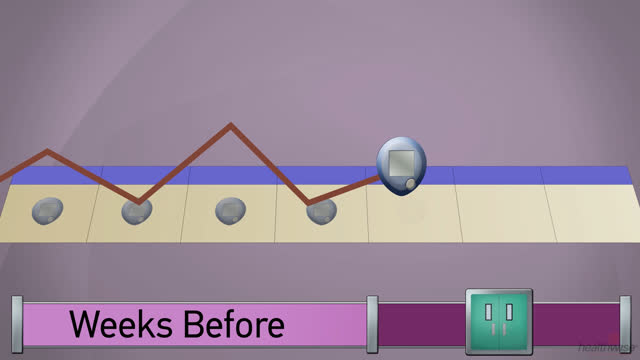Diabetes: How to Prepare for a Colonoscopy
Topic Overview
What is a colonoscopy?
A colonoscopy is a test that lets a doctor look inside your colon. The doctor uses a thin, lighted tube called a colonoscope to look for small growths (called polyps), cancer, and other problems like bleeding.
During the test, the doctor can take samples of tissue that can be checked for cancer or other problems. This is called a biopsy. A colonoscopy also lets the doctor take out polyps.
Before the test, you will need to stop eating solid foods. You also will drink a liquid or take a tablet that cleans out your colon. This will help your doctor to be able to see inside your colon during the test.
Before you schedule
When you make your appointment for the colonoscopy, mention that you have diabetes. Ask for any special instructions. Request an early morning appointment so you can get back as soon as possible to your normal routine for eating and taking medicines.
The doctor doing your colonoscopy (gastroenterologist) will want to know about all the medicines you take. Be sure to also tell him or her about any vitamins, supplements, and herbal remedies you take. It’s a good idea to have a list of all your medicines when you make your appointment.
If you take aspirin or some other blood thinner, your doctor will tell you if and when you should stop taking this medicine before your test.
Before the procedure
Talk with your diabetes doctor about how best to manage your blood sugar before and after the test.
Arrange to stay home on the day of the test. When you use the liquid or pills to clean out your colon, you will go to the bathroom a lot. You’ll get detailed instructions from the doctor on how to use the medicines (colon prep).
Discuss with your doctor the different types of medicines. You may need a type that is safest for people with kidney problems.
Stop drinking alcohol at least 1 day before and 1 day after your procedure. Alcohol could cause a strong reaction with the anesthesia medicines used during the test.
Managing blood sugar and medicines
Your doctor may have you track your blood sugar for at least 24 hours before and 72 hours after your test.
Plan on bringing your blood sugar meter and test strips with you to the test. Also, have glucose tablets or other quick sugar food with you in case your blood sugar drops too low.
If you take insulin or other medicine for diabetes, your doctor will give you exact instructions about how to take your medicines. You may need to change your diabetes treatment before and after the procedure.
Everyone is different. It’s important to talk with your doctor if you don’t understand what to do with your medicines. Get the instructions in writing, and bring them with you to the test.
Generally, if you take:
- Metformin, your doctor may have you stop taking it 48 hours before and after your colonoscopy.
- Diabetes medicine other than insulin, your doctor may have you stop taking your medicine on the morning of the test.
- Short-acting insulin, your doctor may have you stop taking it on the morning of the test.
- Long-acting insulin, your doctor may have you take only half of your usual dose on the morning of the test.
Bring your diabetes medicine with you to take after the test as your doctor suggests. Don’t take a double dose of medicines you’ve missed.
How to eat and drink
You’ll get detailed instructions about food and drink when you get the medicines to cleanse your colon. Generally, the day before the test, you’ll only be able to have clear liquids. These include water, tea, coffee, clear juices and broths, gelatin, and sports drinks.
Work with your diabetes doctor on how best to manage carbohydrate as you prepare for the test. You may want to plan 45 grams of carbohydrate for liquid “meals” and 15 to 30 grams for snacks. Apple or white grape juice and sweetened gelatins are a few options.
Current as of: April 16, 2019
Author: Healthwise Staff
Medical Review:E. Gregory Thompson MD – Internal Medicine & Adam Husney MD – Family Medicine & Kathleen Romito MD – Family Medicine & Matthew I. Kim MD – Endocrinology & David C.W. Lau MD, PhD, FRCPC – Endocrinology
This information does not replace the advice of a doctor. Healthwise, Incorporated, disclaims any warranty or liability for your use of this information. Your use of this information means that you agree to the Terms of Use. Learn how we develop our content.



